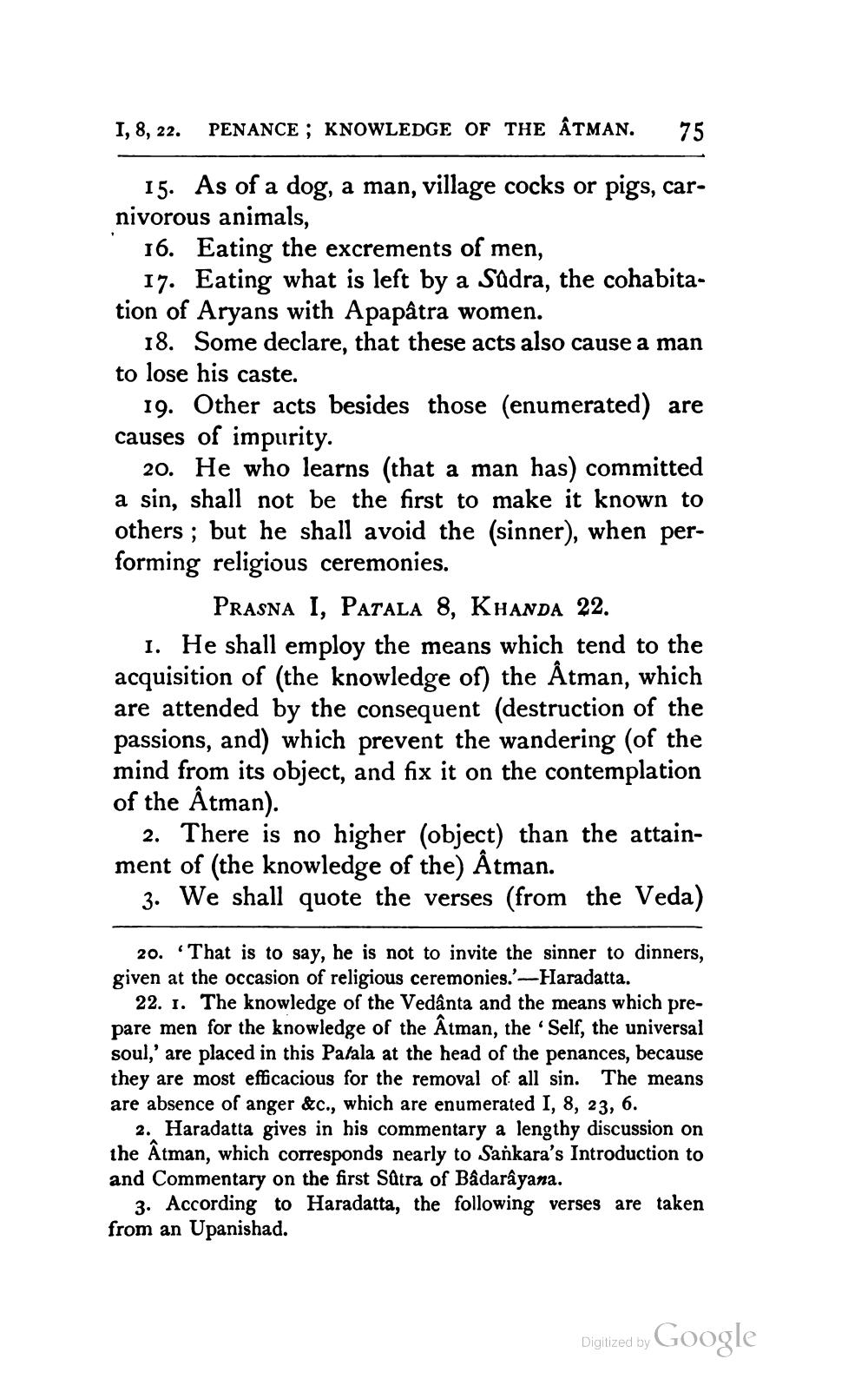________________
1,8, 22. PENANCE ; KNOWLEDGE OF THE ÂTMAN.
75
15. As of a dog, a man, village cocks or pigs, carnivorous animals,
16. Eating the excrements of men,
17. Eating what is left by a Sudra, the cohabitation of Aryans with Apapâtra women.
18. Some declare, that these acts also cause a man to lose his caste.
19. Other acts besides those (enumerated) are causes of impurity.
20. He who learns (that a man has) committed a sin, shall not be the first to make it known to others ; but he shall avoid the (sinner), when performing religious ceremonies.
PRASNA I, Patala 8, KHANDA 22. 1. He shall employ the means which tend to the acquisition of (the knowledge of) the Åtman, which are attended by the consequent (destruction of the passions, and) which prevent the wandering (of the mind from its object, and fix it on the contemplation of the Atman).
2. There is no higher (object) than the attainment of (the knowledge of the) Åtman.
3. We shall quote the verses (from the Veda)
20. "That is to say, he is not to invite the sinner to dinners, given at the occasion of religious ceremonies.'--Haradatta.
22. 1. The knowledge of the Vedanta and the means which prepare men for the knowledge of the Atman, the Self, the universal soul,' are placed in this Patala at the head of the penances, because they are most efficacious for the removal of all sin. The means are absence of anger &c., which are enumerated I, 8, 23, 6.
2. Haradatta gives in his commentary a lengthy discussion on the Atman, which corresponds nearly to Sankara's Introduction to and Commentary on the first Sätra of Bådarayana.
3. According to Haradatta, the following verses are taken from an Upanishad.
Digjized by Google




